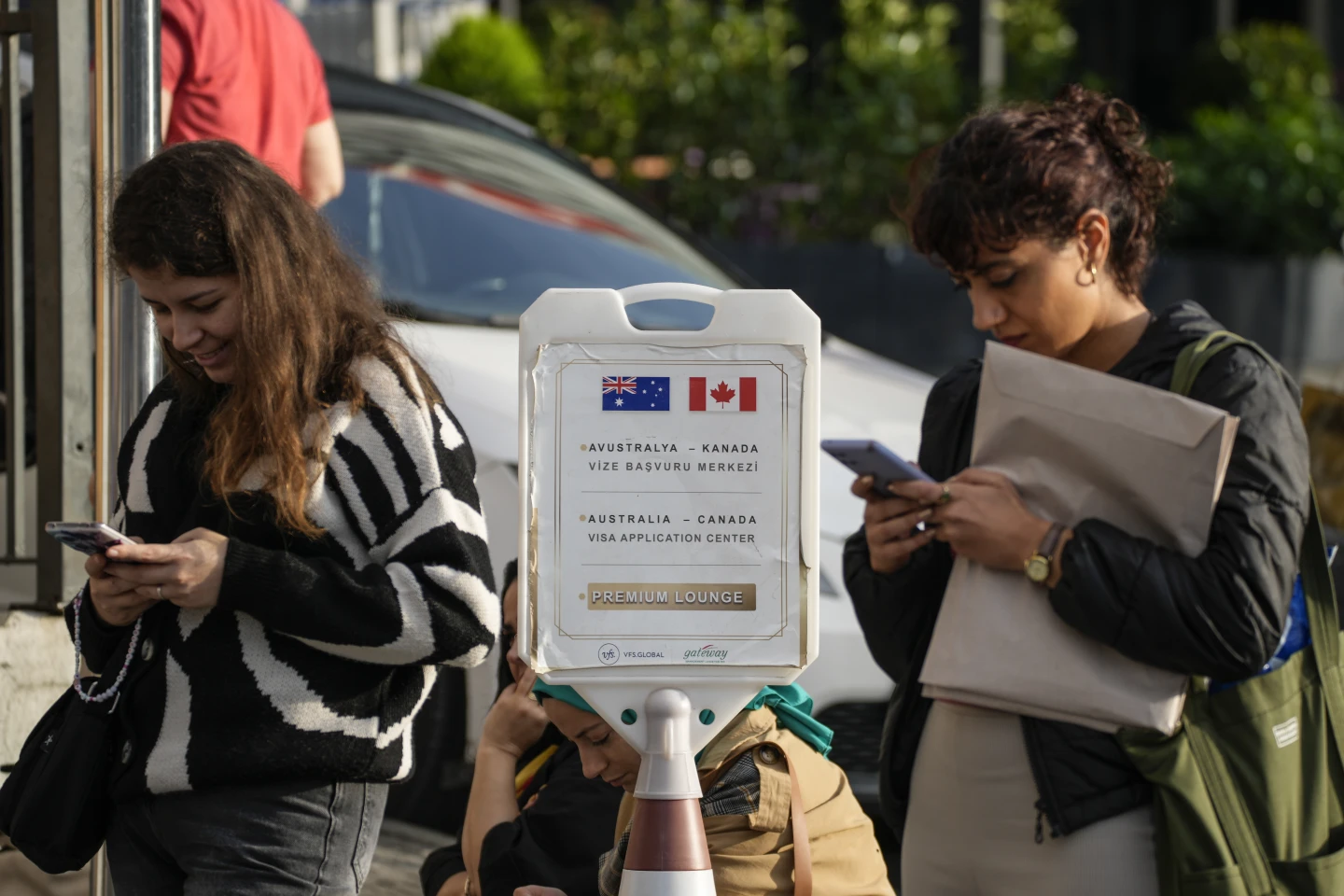
Visa issues with European countries have been increasingly affecting students who wish to study abroad. Some countries reject applications for vague reasons, while others do not even offer appointment slots.
With tuition fees already paid, many students are now fearing the loss of their education rights without even setting foot in their new schools.
According to statistics from the European Commission, the rejection rate for Schengen visa applications for Turkish citizens was 9.7% in 2019, but this number surged to 16.1% in 2023. Experts have observed that the number of rejected applications has been rapidly increasing this year.
The visa process, which has already become a challenge for overseas education, is now disrupting students' future plans and influencing their choice of study destinations.

In some cases, students have to wait up to a year to obtain a visa from certain countries. While some nations complicate the appointment process, others reject applications without providing any justification.
Students who have already paid for tuition and accommodation fees are left helpless, facing the possibility of losing their right to study abroad before even arriving. Students and their families in cities like Istanbul and Izmir are voicing their frustrations, unwilling to give up their educational dreams.
Recently, parents of students who had earned the right to study in Italy but couldn't secure their visas took to the streets. They pointed out that around 1,000 students risk losing their university enrollment rights if they can't attend classes by Nov. 30.
Education Consultant Gokhan Ozdemir shared his thoughts on the matter: "For example, in a country like Poland, where it shouldn't be difficult to obtain a visa, we are facing significant problems. We are unsure about the reasons, but in the last 2-3 years, it has been incredibly difficult to get a visa appointment. Students must visit the agency's website to book an appointment, but this process is nearly impossible. Students have paid for their school, transportation, and accommodation, yet they can't even get an appointment, let alone a visa."
According to a report by the Turkish daily Hurriyet, Gokhan Ozdemir stated, “Visa appointments are now being traded on the black market. This issue has been exploited by hackers who use system loopholes to secure appointments for a fee. The cost for this service has reached as high as €800 ($837.42). However, securing an appointment only guarantees the opportunity to apply—it doesn’t guarantee the visa.”
The process of obtaining a student visa for foreign education has become more challenging across the board, with the exception of the United Kingdom. Eren Goker, head of the International Education Consultants Association, explained: "Visa processes have become more difficult in all countries. Countries like France, Italy, and Greece, which used to offer immediate visa applications, are now almost impossible to even get an appointment with. Many European Union countries cite a decrease in the number of civil servants after the pandemic as the cause. However, I believe there are other factors at play as well."
Vildan Arslan, the mother of Cagan Arslan, who has been unable to secure a student visa to Poland, shared her frustration: "Since middle school, my son dreamed of studying software engineering in Poland. We paid for everything as soon as we received the school acceptance. But now, visa appointments are closed, and no one can secure one.
The school in Poland has started its classes, and they have given us until Nov. 30. After that, my son's educational rights will be lost. Meanwhile, we’ve been paying rent for a house we haven’t even used for the past four months. Even if appointments reopen, it seems almost impossible for us to get a visa in time."

According to a report by Hurriyet, Eren Goker outlined the current situation across various countries:
The increasing difficulty of securing student visas has cast a shadow over the dreams of many Turkish students planning to study abroad. While certain countries like the United Kingdom remain more accessible, students facing complications in countries like Poland, Italy, and Germany are left with few options but to wait—often at great financial cost.
As the Nov. 30 deadline looms for many, the uncertainty surrounding visa approvals could drastically affect the academic futures of thousands.